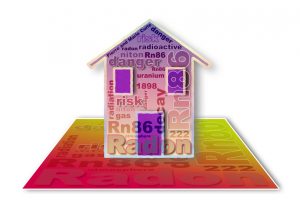 Homeowners beware: every single home in Colorado is at risk for radon gas.
Homeowners beware: every single home in Colorado is at risk for radon gas.
Radon is a colorless, odorless gas that occurs naturally when uranium breaks down and decays. It can seep into the home in many different ways; through cracks in the foundation, via a dirt basement floor, and/or electrical outlets and pipes. When ingested, radon gas can be especially dangerous and if it goes untreated it can even cause lung cancer.
Earlier this year, the Colorado Department of Public Health and Environment released a report explaining that every single county in Colorado is at risk for radon gas. According to professionals, this is because Colorado soil has a high presence of uranium due to being a highly mineralized state.
According to the EPA, no amount of radon in the home is considered safe, and the only way to know for sure if you are at risk is to invest in residential radon testing services. To know the level of gas within your home, the EPA action level is four picocuries per liter of air. Any home that is found to be at a four or over must invest in a radon mitigation and abatement service.
For perspective, the most recent data for the state found by the Colorado DPHE includes:
- Number of Radon Samples: 12826
- Mean Score (pCi/L): 5.0
- Median Score (pCi/L): 3.4
- Maximum Score (pCi/L): 855.5
- Number of Samples Higher than 4 pCi/L: 5632
- Percent of Samples Higher than 4 pCi/L: 43.9
So with these statistics in mind, it is crucial for every homeowner to contact a local radon testing company to ensure their home is safe. Here are some details to keep in mind when looking for radon:
- There are two different types of radon testing: long-term and short-term. Short term devices only measure for radon for up to 90 days, when long-term devices focus on the concentration after 90 days.
- It is best to test for radon during the colder months, as this is when all the doors and windows are shut.
- It is best to test the home, top to bottom, for radon as it can quickly infiltrate the livable areas if not properly monitored.
Contact your local radon testing company today to eliminate radon from your home!

Recent Comments